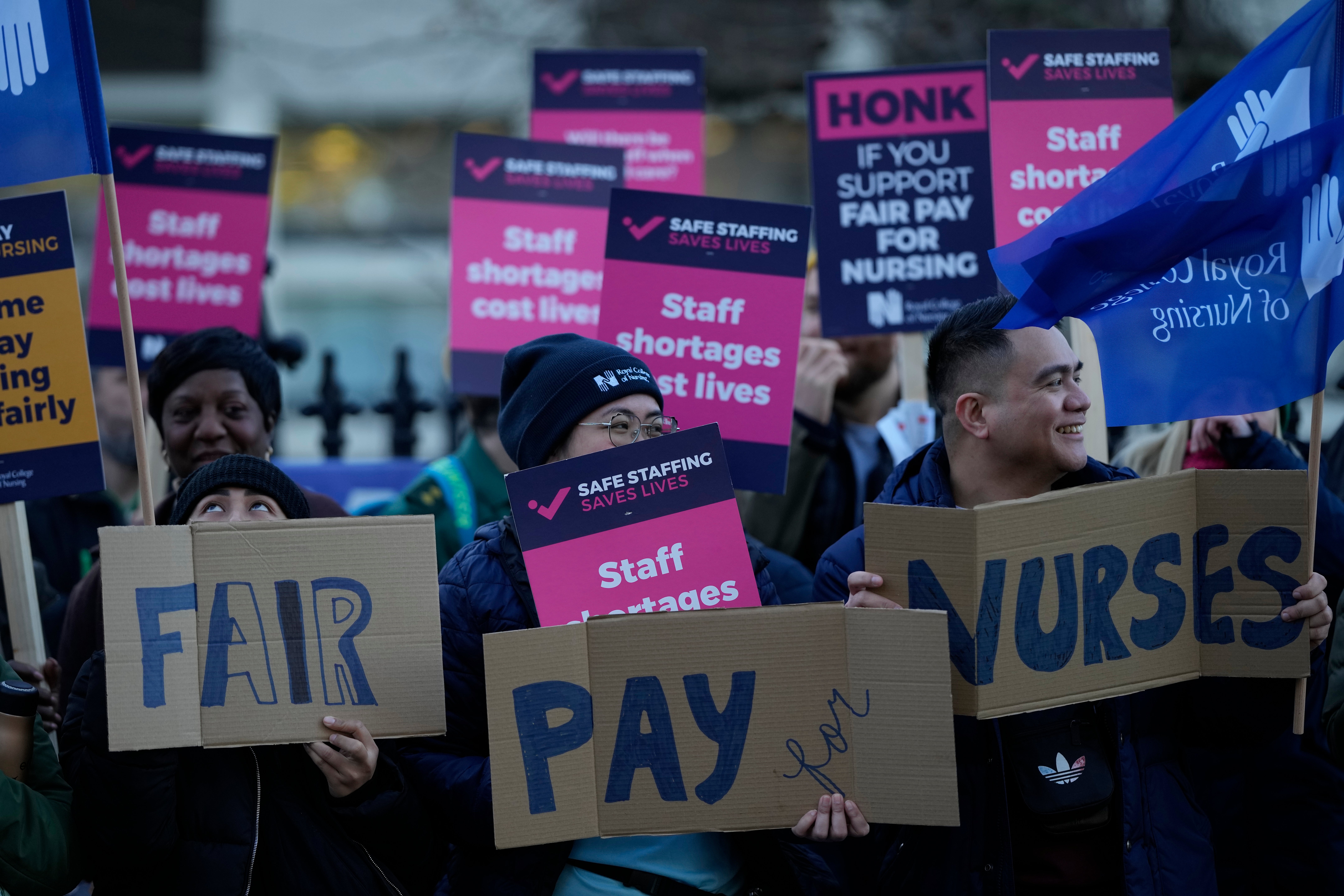Rishi Sunak has lost the argument – and lost control of NHS strikes
Editorial: The prime minister is being very foolish if he thinks he can just sit and do nothing while the crisis in the health service – exacerbated but not caused by this rare industrial action – worsens

To win a strike, or at least a high-profile one that affects the public on the most vital level, it is first necessary to win the argument. On that basis, victory for the nurses and paramedics is all but inevitable.
Indeed, it is fair to say that ministers have barely made the case for imposing the below-inflation pay increase recommended by the NHS independent pay body. All we ever hear is that the offer is non-negotiable, which is unreasonable, and that the nurses’ claim would be inflationary, which is at least debatable.
Tacitly, the public mood seems to be that they would much rather tolerate a little more inflation and taxation, and not have to wait hours for an ambulance and then more hours to be admitted to a ward.
Rishi Sunak, in his latest intervention, has nothing to offer the strikers or the public for that matter, except a display of stubbornness not seen since the trench warfare of the First World War. The prime minister is prepared for a war of attrition against poorly paid and overworked NHS staff, and for it to drag on for months on end. Ironically, every time he declares the government is “acting fairly and reasonably”, the more intransigent and aggressive he sounds because he is not prepared to do the one thing that would bring this strike to a swift conclusion – to engage in talks about salaries and understaffing.
Embarrassingly for him, there are no strikes in Scotland because the government there took a realistic view of the consequences of strike action and further real-terms pay cuts for medical professionals.
NHS management warns that clinical care is in jeopardy, and urges Mr Sunak to approve talks on pay. The pressure is building. Mr Sunak has some eminently fair and reasonable steps he could take immediately. It is obvious that the NHS independent pay review body was issued with a remit by the government that steered them towards a modest increase, and that their recommendations were made before inflation took off. Their working assumption was inflation of around 4 per cent, not 10 per cent. Thus Mr Sunak could refer the pay recommendation back to the review body, with a more realistic remit. Done swiftly, the strikes could soon be called off.
As has been speculated, the government could also bring forward next year’s pay review, with a view to improving the offer. Indeed, Mr Sunak has hinted as much, in return for the unions calling off the strikes now. Yet the Royal College of Nursing and Unison might be forgiven for sniffing a trap, and so would the public: vague promises made by a prime minister in a tight corner won’t pay the gas bill.
Mr Sunak and his low-energy health secretary, Stephen Barclay, should also know that the facts on the ground – in the clinics, on the wards and in the ambulance units – are against them. Nurses and paramedics need to be paid more, not just on the grounds of fairness and sympathy but because there is a shortage of staff and, if wages carry on declining in real terms, as they have for more than a decade of “austerity” freezes and minuscule rises, there will be even fewer nurses and paramedics to tend to the sick.
Like wars, eventually strikes have to end and there have to be compromises. Mr Sunak is being very foolish if he thinks he can just sit and do nothing while the crisis in the health service – exacerbated but not caused by this rare industrial action – worsens. The soldiers are too thinly spread to make much difference to the ambulance strike, and it’s not appropriate to have the armed forces politicised and resented as strikebreakers.
Some of his own MPs have urged him to give way, and public opinion remains sympathetic to the NHS staff and their cause. The easy thing for Mr Sunak to do is to just keep saying “no” to talks with a view to changing the offer. He can sit in some comfort in Downing Street and Chequers while the chaos is unleashed. But he is taking huge risks with the future of his government. Winters of discontent don’t end well for governments because it makes them look like they are no longer in control of events, which is becoming the case now.
The more difficult thing is to find imaginative ways to end this dispute as soon as possible. At the moment, Mr Sunak bleats that it’s too late in the fiscal year to make changes. He sounds like a peevish accountant and it is another argument the public has no interest in. They want their NHS back in working order, now, and they want Mr Sunak to get on with doing so.
He’s lost the argument, he’s losing control of events, and soon he will lose the strike. The political trench he finds himself in is a dangerous one and, as the old phrase goes, when a politician finds themself in a hole, they really should stop digging.



Join our commenting forum
Join thought-provoking conversations, follow other Independent readers and see their replies
Comments